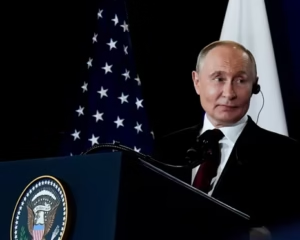Israel’s restriction of food supplies to Gaza constitutes a ‘weapon of war’, says UN Palestinian refugee agency chief in BBC interview.

Journalists in Gaza, many of them Palestinian, continue their work under extreme danger. More than 200 have lost their lives since the conflict began, highlighting the immense risks of reporting from within the besieged territory. Meanwhile, Israel has barred international media from entering Gaza, severely limiting outside access and first-hand reporting.
Without the ability to witness events directly, much of what the world knows about the humanitarian crisis in Gaza comes from aid organizations. The International Committee of the Red Cross recently warned that civilians face daily survival challenges — not only from ongoing violence but also from repeated displacement and the denial of life-saving assistance. “This situation must not — and cannot — be allowed to worsen,” said Pascal Hundt, the group’s deputy operations director.
However, the crisis may deepen. On March 18, a two-month ceasefire ended as Israel launched extensive airstrikes and tightened its blockade. Since early March, Israel has largely halted all humanitarian aid shipments into Gaza, including food and medical supplies. This blockade, coupled with renewed military offensives, has extinguished any progress toward a broader ceasefire deal that might have led to the release of remaining hostages and a potential Israeli withdrawal.
Israeli Prime Minister Benjamin Netanyahu has faced political pressure from far-right coalition partners who have threatened to dissolve his government unless the war escalates. Their ultimate vision is a Gaza without Palestinians, replaced by Israeli settlers. For Netanyahu, continuing the war may also stave off political consequences from the October 7 attacks and his ongoing corruption trial.
As Netanyahu promises a new, intensified campaign in Gaza, aid officials warn of an unfolding catastrophe. The plan reportedly includes the mass displacement of civilians, most of whom have already fled multiple times. Before the war, Gaza was one of the most densely populated areas on Earth. Now, Israel aims to push the remaining population into an even smaller area around the southern city of Rafah — itself nearly leveled by bombardment.
According to the UN, roughly 70% of Gaza is already inaccessible to its residents. Leading humanitarian organizations reject Israeli claims that Hamas is intercepting aid and have refused to take part in Israeli-U.S. proposals involving private contractors under military protection for distributing food.
Philippe Lazzarini, Commissioner-General of UNRWA, the UN agency for Palestinian refugees, described the situation as catastrophic. “People are starving. They’re exhausted,” he said in an interview. “We are witnessing the weaponization of humanitarian aid.” He warned that without immediate aid access, starvation could soon overtake bombardment as the leading cause of death in Gaza.
Supporting his concerns, the Integrated Food Security Phase Classification (IPC), a joint initiative of UN agencies and aid groups, reports that Gaza is on the brink of famine. Nearly the entire population of over two million is suffering from acute food insecurity. About 470,000 people — nearly a quarter of Gaza’s residents — are classified as being in “Phase 5: Catastrophe,” a designation that implies widespread malnutrition and imminent risk of death.
Despite humanitarian aid sitting just miles away across the Egyptian border, it remains blocked. Israel’s Defense Minister Israel Katz has described the blockade as a deliberate pressure tactic to force Hamas into surrender. This approach, echoed by National Security Minister Itamar Ben-Gvir, has drawn outrage from Israeli families of hostages, who fear that ongoing war efforts are prioritizing territorial aims over rescuing their loved ones.
The Israeli government has also accused Lazzarini and UNRWA of bias and even complicity with Hamas, allegations he denies. UNRWA suspended 19 staffers based on Israeli claims but continues to request substantiated evidence — which Lazzarini says has not been provided.
As the humanitarian crisis deepens and the international community debates terms like war crimes and genocide, Lazzarini cautions that history may judge harshly: “We have let a massive atrocity happen under our watch.”







